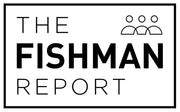Intensive Structural Therapy: Treating Families in Their Social Context
Families today are assailed on all fronts by the profound changes, such as the decline of real wages and the loss in many industries of job security, that have shaken society over the past forty years and forced the monolithic family structure to take on a multitude of new forms, including the now-common dual-income family and the single-parent family. With families now more dependent on outside institutions for help and support - from the day care center to social services to neighbors and friends - family therapy needs a model of intervention that is capable of dealing with the new role these outside institutions and their representatives play in the life of the family. In this groundbreaking book, H. Charles Fishman takes this next logical step in the evolution of the treatment of families and details how to assess the broader system supporting and affecting the family and how to intervene effectively. Assessment techniques show how to decide which people and institutions (such as siblings, friends, co-workers, employers, social workers, teachers, clergy) need to be incorporated into the treatment. Fishman outlines how and when representatives of these outside institutions should meet with the therapist and the family. Rich case examples extensively illustrate principles of intervention for working within the family’s context and for identifying who or what is maintaining the dysfunction of the family system. A concluding section reveals that altruism, a side of human nature too easily forgotten or dismissed, is the driving force behind the cooperative spirit regularly shown by participants in intensive structural therapy. This surprising finding is sure to inspire all who help families deal with the stresses of life today.
"This is an excellent book that takes structural family therapy to its intended destination. With its outstanding cases, this book will be of value to both trainees and experienced therapists. Policy makers will find the second part of the book, which describes the interface of the clinician and the schools, courts, hospitals, and social services agencies, especially interesting and important."
-Salvador Minuchin, M.D.
Family Studies, Inc.

